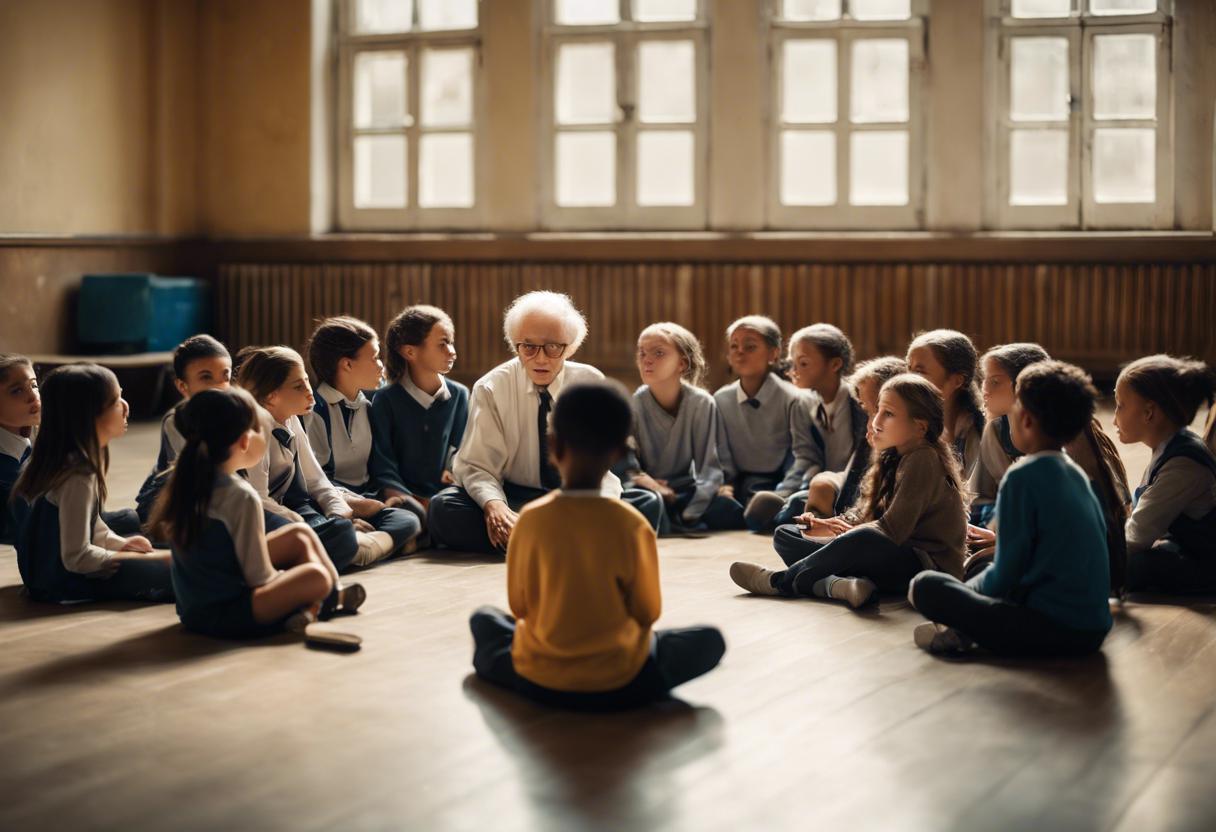A fresh 21st century folklore initiative is set to involve schoolchildren in telling tales from their own lives and communities. This initiative is modelled after a similar, historic schools’ folklore project, launched by the National Folklore Collection in 1937. This precedent-setting endeavour was celebrated for capturing the narratives of the youth, amassing half a million pages of verbal history, anecdotes and traditions, puzzles and sayings, recreational activities, and local industries and skills from over 50,000 students spanning 5,000 schools nationwide from 1937 to 1939.
Operating in collaboration with the National Folklore Collection and UCD Library, the renewed folklore endeavour is set to encompass all of the 4,000 primary, secondary and specialist schools in the nation, inviting every pupil to participate.
The Education Minister, Norma Foley declared at a recent disclosure that this programme will provide the youngsters an opportunity to play a critical role in “collecting and keeping alive the abundant tales, customs, and histories of their local areas for future generations”.
The scheme is set to kick off, with schools projected to receive communication early next year. Minister Foley drew a contrast with the inaugural 1930s schools’ collection by the National Folklore Project, which was primarily focused on primary schools, seeing that secondary education was not as commonplace at that time.
Participation is not mandatory, and pupils and schools can submit their contributions in various formats, such as handwritten records and digital submissions. These compilations will eventually constitute a national repository and are earmarked to be published after a significant duration.
The Minister made this announcement at a commemorative occasion held by the Department of Education on Marlborough Street, marking their centenary. The department was officially instituted in 1924, under the Ministers and Secretaries Act.
During the gathering, Ms. Foley acknowledged the numerous triumphs and landmark moments achieved in the previous century. Simultaneously, she emphasised that she was acutely aware of the requirement to contemplate the numerous shortcomings that transpired, which in many instances had lifelong impact.
“There has been a flurry of brave testimonies we have seen and heard in recent times recounting the dreadful experiences many endured during their school years in the nation. It is our duty to guarantee we remember,” Ms Foley added.
She pointed out that over the last century the system has taken notable steps to widen the access to education. She mentioned, “In 1924, the count of pupils at any type of secondary school was barely 40,000 – a figure that has grown to over 400,000 today.”
“Initiatives to reinforce equality of education access hold as much significance now as they did in 1967 when Minister Donogh O’Malley launched the free education scheme,” said Ms Foley. She further added, “Amid all obstacles confronted, be it emigration, recession or the Covid-19 pandemic, our faith in the value and prominence of education remains unwavering.”
The gathering saw the presence of ex-ministers for education like Michael Woods, Mary Hanafin and Richard Bruton, and former secretary general Brigid McManus.
Writer and broadcaster Olivia O’Leary addressed the occasion and criticised the department for permitting a “divided, sectarian system of education” to emerge, which, she believes, undermined our “shared sense of state identity” by creating factions within the populace. However, she expressed gratitude towards the state for financing her education, which she said “radically changed my life and provided me with a career which I cherish. I consider myself fortunate and will be eternally thankful.”

